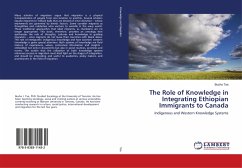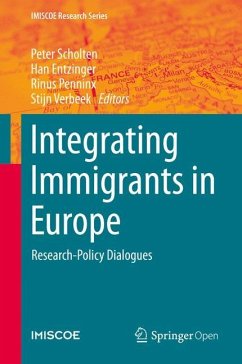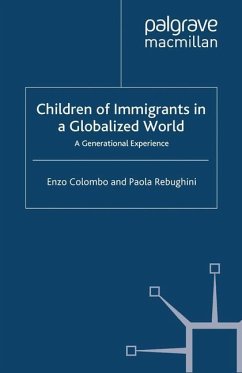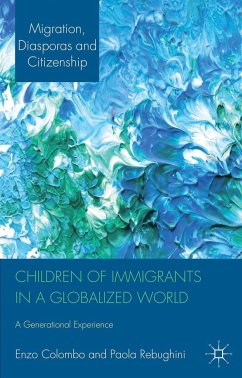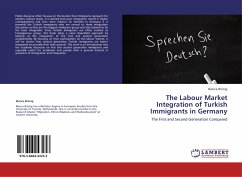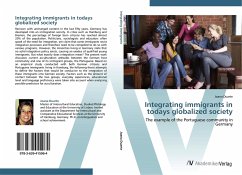
Integrating immigrants in todays globalized society
The example of the Portuguese community in Germany
Versandkostenfrei!
Versandfertig in 1-2 Wochen
32,99 €
inkl. MwSt.

PAYBACK Punkte
16 °P sammeln!
Revision with unchanged content. In the last fifty years, Germany has developed into an immigration society. In cities such as Hamburg and Bremen, the percentage of foreign born citizens has reached almost 20% of the population. Politicians, sociologists and edu ca tors often speak of the need for integration, yet claim that some immigrants resist integrative processes and therefore need to be compelled to do so with various programs. However, the minorities living in Germany state that no solid integration policy exists, causing an exodus of qualified young immigrants. But what exactly does i...
Revision with unchanged content. In the last fifty years, Germany has developed into an immigration society. In cities such as Hamburg and Bremen, the percentage of foreign born citizens has reached almost 20% of the population. Politicians, sociologists and edu ca tors often speak of the need for integration, yet claim that some immigrants resist integrative processes and therefore need to be compelled to do so with various programs. However, the minorities living in Germany state that no solid integration policy exists, causing an exodus of qualified young immigrants. But what exactly does integration mean? The present work discusses current acculturation attitudes between the Ger man host community and one of its immigrant groups, the Portuguese. Based on an empirical study conducted with both German citizens and Portuguese immigrants living in Hamburg, the following thesis attempts to define the factors that would be conducive to the integration of these immigrants into German society. Factors such as the amount of contact between the two groups, everyday experiences, educational level and language proficiency were taken into account when analyzing possible predictors for acculturation.



